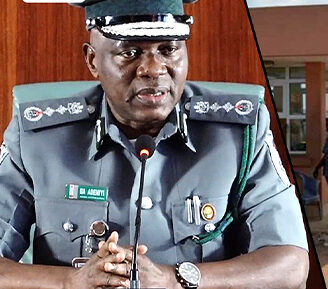Reputation is an essential component of national development (Customs C-G).
According to Mr. Adewale Adeniyi, the Comptroller-General of the Nigeria Customs Service (NCS), reputation is an essential component in each and every facet of human and national growth.
Adeniyi made this declaration on Thursday in Abuja, not long after the Nigerian Institute of Public Relations (NIPR) introduced him to the international community. within the capacity of chairman of the committee for the Nigeria Reputation Management Group (NRMG).
As far as he is concerned, any person, organisation, state, or nation that wishes to be taken seriously by its contemporaries is required to make a concerted effort to cultivate a culture of “reputation consciousness.”
It is unfortunate that a large number of African countries do not acknowledge the significance of reputation in reversing the trajectory of their economies.
“Reputation is a notion that is so important that if its components are properly understood, it will position any country for higher value, worldwide significance, and extraordinary competitiveness. This is despite the fact that reputation is intangible in nature.
According to what he had to say, “I am glad that this wonderful notion of NRMG is a product of an institute whose mandate focuses around reputation building and management.” this was the statement that he made.
Adeniyi claimed that the international community had a negative opinion of the nation, and this opinion had a significant impact on the country’s economy.
“I believe that a renewed commitment to the cause of enhancing the nation’s reputation and a concerted effort to do so will result in the appropriate outcomes.
Would it be possible for me to reassure the institute as well as our stakeholders located all across the country that I would do everything in my power to guarantee that the goals of this significant endeavour are accomplished? It was said by him.
It was his strong recommendation that both the federal government and the state governments give importance to concerns pertaining to reputation.
The C-G stated that “any reputational misstep from individuals, organisations, or the government distorts development and undermines our global outlook and rating, so retarding progress.” This statement was made in reference to corruption.
Dr. Ike Neliaku, the President of the National Institute for Public Relations (NIPR), had stated before that the committee will rectify the misrepresentation of the country.
According to Neliaku, the members of the committee would be tasked with the job of building the context, creating content, and giving the strategy for the development of NRMG in a sustainable manner.
In addition, he stated that they will make recommendations regarding important social, economic, and cultural events that may be utilised to enhance the reputation of the nationwide entity.
It is recommended that adequate operational modalities, including deadlines for the launch of NRMG in Nigeria, be taken into consideration and recommended.
In addition to this, the committee will identify and recommend suitable partners and stakeholders for the NRMG project, as well as provide advice on how to engage these particular individuals.
“It will identify essential national assets, enterprises, organisations, and government agencies whose activities impact Nigeria’s national reputation,” he stated.
“It will also assess and recommend projects to be performed by the National Reputation Management Group (NRMG) when it is established.”
As a world-class, flagship event of the Nigerian Institute of Public Relations (NIPR), he asked them to also arrange and reconvene the annual Nigeria Reputation Summit in October of each year beginning in 2024. This will provide value to both the government and the citizens.
In order to ensure that the outcomes of the annual Nigeria Reputation Summit are carried out in a manner that is both well-coordinated and led, he provided members with advice on available methods and approaches.




